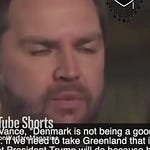NATO expansion may explain Moscow’s anxiety, but it doesn’t excuse disinformation, infiltration, and the silent dismantling of democracy.
In a recent interview with the BBC, a former Kremlin advisor asserted that the optimal resolution to the ongoing conflict is the complete capitulation of Ukraine. He emphasized that Russia's military actions are not directed against Ukrainians per se, but are aimed at countering European influence, stating, "We are fighting in Ukraine not against Ukrainians; we're fighting against Europe."
The advisor dismissed concerns that Russia harbors ambitions beyond Ukraine, particularly regarding further incursions into Europe. He argued that Russia has no interest in occupying European territories, referring to them dismissively and questioning the rationale behind any desire to control such regions. He reiterated that Russia's primary objective is to neutralize perceived threats from NATO's eastward expansion, which Moscow has consistently opposed for nearly three decades.
On the topic of nuclear strategy, the former advisor did not rule out the possibility of escalating to nuclear options if deemed necessary. He acknowledged the gravity of such a decision but maintained that, if pushed to the brink, Russia could consider a preemptive strike, believing that the United States would be unlikely to retaliate in kind. He also highlighted NATO's historical stance on nuclear first-use policies, suggesting that Russia's position is a mirror response to longstanding NATO doctrines.
Regarding the desired outcome in Ukraine, the advisor was unequivocal in advocating for Ukraine's total capitulation. He expressed hope that post-conflict, Ukraine would be demilitarized and neutralized, ensuring it would no longer serve as a forward base against Russia. He warned that failure to achieve these objectives could lead to the resumption of hostilities.
This perspective underscores the deep-seated tensions and the complex geopolitical dynamics at play, reflecting Russia's strategic considerations and its stance on NATO's influence in Eastern Europe.
Although some of Russia's grievances—such as the persistent eastward expansion of NATO—may hold geopolitical merit in the abstract, they do not justify the scope and scale of the hybrid warfare waged on the West. The invasion of Ukraine, combined with a sweeping information war that includes disinformation, election interference, and ideological subversion, marks a coordinated strategy to undermine Western democracies from within. Nowhere is this more evident than in the rise of Donald Trump, whose alignment with Russian narratives and policies has raised alarms among intelligence experts. His role in American politics resembles that of a modern-day "Krasnov"—a political Trojan horse enabling adversarial influence at the highest levels of government.
If Russia’s concerns were genuinely about security and NATO encroachment, they had ample opportunity to address these issues on the world stage through diplomatic forums like the United Nations. The refusal to pursue multilateral dialogue in favor of armed aggression and subversion reveals that the true objective extends far beyond border anxieties—it is about reshaping global power structures through destabilization.
This missed opportunity was not without warning. Mikhail Gorbachev, the last leader of the Soviet Union, repeatedly emphasized the need for a new kind of global cooperation following the Cold War. He advocated for a Europe “from Lisbon to Vladivostok” and warned that NATO expansion without Russian inclusion or engagement would create dangerous imbalances and new fault lines. Gorbachev foresaw that ignoring Russia's strategic concerns could result in a return to Cold War dynamics—or worse, a hybrid confrontation rooted in mistrust and manipulation.
In fact, this long-game strategy may have been in development even before Vladimir Putin’s rise to power. However, it was under Putin’s leadership that each phase of the infiltration—political, economic, ideological—was executed with ruthless precision. The West was not simply outmaneuvered on the battlefield but systematically infiltrated from within. Putin’s effectiveness in turning Russian grievances into a hybrid assault on democratic systems represents the full realization of a strategy decades in the making.
Such infiltration into the democratic fabric of the West represents not just a military or political threat, but a moral crisis. It challenges the resilience of institutions, the integrity of elections, and the sovereignty of truth itself. Recognizing these tactics as part of a broader war—not of tanks, but of truths—is essential to preserving the democratic ideals under siege.
And the United States must come to terms with an uncomfortable truth: its own internal collapse is being hastened by foreign influence and domestic complicity. Some of its most critical institutions—and alarmingly, nearly half of Congress and the Senate—are now compromised by dark money, much of it traceable to foreign interests and Russian-affiliated political action committees.
This is no longer just a matter of politics. It’s a matter of sovereignty. A government that serves special interests—be they corporate or foreign—ceases to serve its people. The legislative paralysis, judicial bias, and erosion of trust in democratic processes all point to an American government no longer functioning in the public’s interest, but in the shadow of silent occupation.
Putin is unofficially the richest man in the world, and his fortune—shrouded in secrecy, offshore accounts, and loyal proxies—has become a political weapon. That wealth is not just hoarded; it is invested in destabilizing the West, influencing elections, buying allies, and funding narratives that undermine liberal democracies from within. It is the fuel for hybrid warfare. And tragically, it is flowing through the veins of American politics.
⚠️ The Final Warning
Let us not delude ourselves—this is not just a geopolitical conflict. It is an existential struggle over the future of liberal democracy, truth, and collective sovereignty. If Putin is, as widely suspected, the richest man on Earth, then his wealth is not merely a testament to kleptocracy—it is a tool for shaping the world order, buying silence, and hijacking institutions. And that money now flows through the arteries of American politics.
The endgame is no longer about Ukraine alone. It’s about the ideological fall of the West. A society that allows disinformation to replace truth, tribalism to replace unity, and foreign interests to replace democratic will is a society no longer in control of its own fate.
We were warned—by our analysts, by our intelligence agencies, by history, and even by former Soviet leaders. Yet we ignored the early tremors. Now, the earthquake is upon us.
America must awaken. The West must unify. And the people—above all—must remember that democracy is not lost in a day. It erodes with every lie believed, every truth silenced, and every compromise made with those who would see it fall.
The question is no longer "What will Putin do next?"
The question is: What will we do now?









